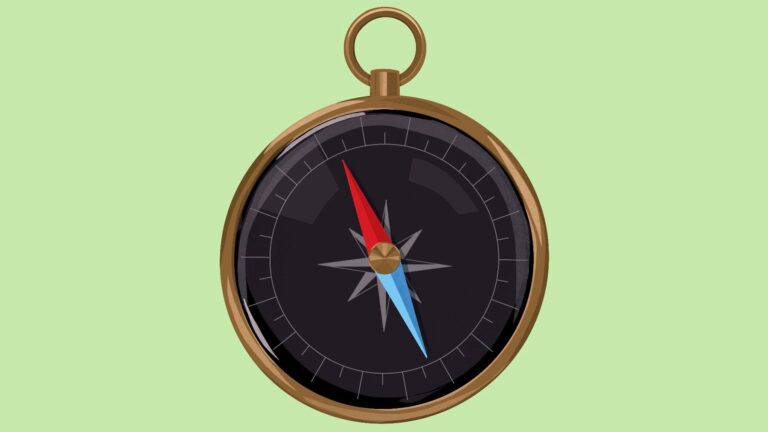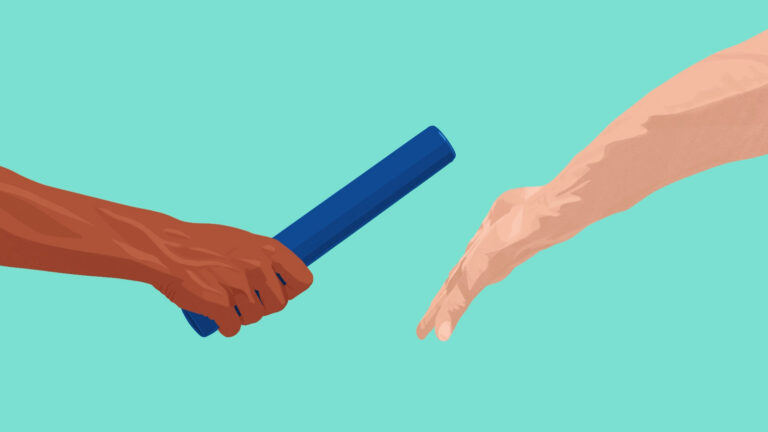Calm is reportedly in talks to raise new funding at a valuation north of $2B.
The company has said it aspires to be the “Nike of the Mind.” As Calm’s co-founder Michael Acton Smith explains it, the goal is to become an all-encompassing wellness brand — one that transcends the digital realm:
“I can see retail outlets, to clothing, to publishing, to hotels. Ultimately, we’d like to buy an island and have a Calm island run as a profitable resort.”
Today, we’ll explore Calm’s path to profitability, its battle with Headspace, the future of the meditation market, and the likelihood that Calm Island comes to fruition.
Do Nothing
Calm was founded in 2012, but the unofficial start came in 2011. That’s when co-founder Alex Tew launched a website called donothingfor2minutes.com.
Known as the creator of a viral website called the Million Dollar Homepage, Tew became a millionaire at age 21. Subsequently, he tried to replicate the site’s success but failed to strike gold. Then, Tew built “do nothing” in hopes of solidifying his personal meditation routine while helping others de-stress.
The site was simple enough, challenging visitors not to touch their mouse or keyboard for two minutes as a timer counted down. According to Tew, the project was just for fun. But more than 1M people visited the site in just a week. Fortunately, Tew had the foresight to collect email addresses, amassing a list that he’d later use when launching Calm.
Before Tew and Acton Smith could get started, they needed to secure the Calm.com domain. The owner of calm.com wanted $1M for it, but the pair countered, offering 5% of their non-existent company instead. The owner declined, ultimately agreeing to sell it for $140K.
From $0 to $1B
Heralded as the first mental health unicorn, garnering $143M in venture funding, early investors passed on Calm.
Worse, in Tew’s telling, the idea was slammed by would-be investors who didn’t understand meditation, grasp the scale of the mental health crisis, or predict the popularity of mindfulness.
At the onset, funding was hard to come by and the team almost ran out of capital on multiple occasions. A blessing in disguise, limited cash meant the company had to spend wisely and pursue profitability. As a result, Calm kept its headcount low and marketing spend at zero while focusing on its core product.
After securing about $1M in seed funding, the company grew revenue from a few hundred thousand dollars in 2014 to $2.3M in 2015, followed by $7M in 2016 and $22M for 2017.
In 2017, Calm reached an inflection point. That year, the company won Apple’s App of the Year award, catapulting it to the top of the charts and into the mainstream consciousness. The following year, in 2018, Calm raised $27M in Series A funding as revenues soared to $80M.
By 2019, Calm had fine-tuned its subscription business while topping 80M downloads. Estimates put the company’s revenue in the range of $150M that year. Most notably, the growth helped Calm secure additional funding, valuing the company at more than $1B.
Competitive Mindfulness
As Calm was taking shape, Headspace was establishing a lead.
Founded in 2010, Headspace had already raised $70M in funding by 2017 compared to Calm’s $1.5M. But, when Calm won App of the Year, the companies took decidedly different paths.
For its part, Headspace has raised a total of $215M in funding, where the last public valuation (in 2017) was $320M. The first-to-market app has been downloaded some 65M times, annual revenue is more than $100M, and it expects to have 3M paying subscribers by year’s end.
A key difference, Headspace has made corporate partnerships a priority. Headspace for Work, the company’s enterprise arm, has signed up more than 1,300 employers, including Starbucks, Adobe, and Unilever.
Headspace is also pursuing a healthcare-focused strategy. Claiming to be “the most science-backed digital mindfulness product,” Headspace is conducting clinical research studies into its product’s efficacy. As part of its Headspace Health initiative, the company hopes to obtain FDA approval, laying the groundwork to get insurance coverage for its app.
While Headspace doubled down on meditation, Calm expanded into the wellness category. This decision helped them surge past their well-funded competitor.
Building on the success of the Daily Calm, the company’s signature 10-minute meditation, Sleep Stories were a game-changer. Adding new content formats like music and Masterclasses, a series of lessons taught by world-renowned experts, helped Calm stand out. And partnerships with celebrities and athletes like Harry Styles, Matthew McConaughey, and LeBron James propelled Calm forward.
But that doesn’t mean Calm is ignoring the employer or insurer market. In May, Calm partnered with Kaiser Permanente, making the app free for the healthcare provider’s 12.4M members. And more recently, Calm teamed up with Lyra Health, a provider of mental health services, gaining access to the employer market.
Mental Wellness
When Calm and Headspace were starting out, meditation wasn’t mainstream. Far from it, the practice was seen as being too woo-woo to gain mass appeal. And, unfortunately, concerns about mental health were suppressed to the point of being stigmatized.
But now, like yoga, jogging, and physical fitness before it, meditation has gained acceptance as part of the thriving wellness economy. More than that, as anxiety and burnout spiral out of control, mindfulness, focus, and relaxation are in high demand — paving the way for products like Calm.
And the number’s are starting to reflect this fact:
- The global meditation industry is expected to reach $9B by 2027.
- Funding for mental health startups totaled $1.37B through Q3 2020.
- Meditation and mindfulness are the fastest-growing health trends in America, with nearly 40% of people reporting weekly meditation and breathwork sessions.
Looking ahead: Calm will try to tap into those trends as it attempts to build a brand around a state of mind. Whether it’s Nike of the Mind, Calm Island, or some other manifestation, meditation is only the beginning:
“We started as a meditation app, but have grown far beyond that. Our vision is to build one of the most valuable and meaningful brands of the 21st century.” – Michael Acton Smith, Calm co-founder & co-CEO
🎙 On the Podcast
This week, on the Fitt Insider podcast, we’re joined by Byron Ling, a partner at Canaan — an early-stage venture capital fund investing in healthcare and technology companies.
In this episode, we discuss:
- backing pre-product and pre-revenue companies
- building a consumer brand in the healthcare space
- investing in companies like Mirror, Ro, Papa, and Uniform Teeth
- what we should watch for as fitness, wellness, and healthcare converge
Listen to the full episode here.
🏷For Sale: Used Peloton
There’s one thing we know about home fitness equipment: most of it goes unused. Which begs the question, what becomes of all the newly purchased, lightly used fitness equipment when the pandemic is behind us?
From dumbbells to Peloton bikes, buyers and sellers have largely relied on sites like Facebook Marketplace and Craigslist. But we’re thinking there has to be a better way.
If you’re interested in the idea of creating a secondary marketplace for fitness equipment, especially connected machines like Peloton—or if you’re already working on a related concept—we should chat. Email us: insider@fitt.co
🤩 Star Power
In an effort to acquire customers and stand out from the crowd, health and fitness companies are going all in on celebrity partnerships.
Nothing new, athletes have traditionally been the focus of endorsement deals. Recently, the most prominent sports stars have leveled up, becoming venture capitalists or founders in their own right.
Now, actors, musicians, and even comedians are highly sought after among fitness and wellness brands.
As we pointed out in Issue No. 64, Impossible Foods and Beyond Meat tapped celebrities to help gain acceptance for plant-based burgers. And today’s lead story on Calm hits on this trend. This summer, when Calm teamed up with Harry Styles (an investor in the company) for a Sleep Story, interest was so high that it crashed the app.
Hoping to replicate this success, more and more celebrity partnerships are taking shape:
- Kevin Hart is Hydrow’s new Chief Creative Officer.
- Beyoncé teamed with Peloton for exclusive workouts.
- Headspace made John Legend its Chief Music Officer.
- Jennifer Aniston joined Vital Proteins as Chief Creative Officer.
- Jay-Z and Pitbull recently invested in CLMBR, a connected climbing machine.
I’m a business, man. While Jay-Z and Beyoncé have assembled an impressive portfolio of health-related ventures, Kevin Hart has been busy building a fitness empire of his own.
Combining his passion with his influence, in 2016, Hart earned a partnership with Nike that included his own shoe.
In the time since, Hart worked with Rally Health, started the vitamin brand VitaHustle, launched Cold as Balls and What the Fit on YouTube, teamed with Hydrow, and became the face of Fabletics’ men’s line.
Adding to this list, yesterday, Hart announced a partnership with Headspace that includes content for YouTube and the app. What’s next… the Kevin Hart fitness app?
🚲 The Zwift Bike?
Last week, Zwift CEO Eric Min discussed the company’s outlook on Bloomberg.
Among other topics, Min confirmed rumors that Zwift is working on a connected bike. When pressed for a launch date, Min responded:
“I wish yesterday. We’re working as fast as we can, but these things do take time.”
Of note, when asked about the growing number of smart bikes on the market, Min said he doesn’t view Peloton as a competitor: “we’re swimming in different lanes.” Min pointed out that only 25% of Zwift users are in the US, signaling the strength of its international presence — something Peloton has yet to tap into.
Looking ahead: Bolstered by a $450M investment secured in September, Zwift is hoping to keep pace while simultaneously charting its own path as the Fortnite of Fitness.
📰 News & Notes
- Our fight for focus. [Reread: Peak Burnout]
- Xponential Fitness bulks up its streaming platform.
- Stephen Curry and Under Armour launch Curry Brand.
- Vuori, an activewear brand, has seen its revenue triple in 2020.
- NordicTrack unveils a Mirror look-alike focused on strength training.
💰 Money Moves
- Consumer goods conglomerate Unilever acquired SmartyPants Vitamins, makers of premium vitamins and supplements, for an undisclosed sum.
- Salut, a digital fitness platform empowering trainers and creators, launched after securing $1.25M in a funding round led by Precursor Ventures.
More from Fitt Insider: Arming the Rebels - Australian connected fitness startup Vitruvian launched its at-home strength training machine after raising AUD$3.42M ($2.5M) in new funding.
More from Fitt Insider: Tracking the Connected Fitness Landscape - CLMBR, makers of a connected vertical climbing machine, received an additional investment from entertainer Pitbull ahead of its commercial launch.
- Eclipse Foods, a plant-based ice cream producer, closed a $12M Series A led by Forerunner Ventures.
More from Fitt Insider: The Quest for Cow-Free Milk - Functional beverage maker Unity Wellness Co. secured 1.25M in Series A funding to scale its line of CBD-infused and adaptogen-added products.
- Power Gummies, a New Delhi-based maker of gummy nutraceutical supplements, added $1M in additional funding.
- The Carlyle Group acquired a majority stake in Every Man Jack, a men’s personal care brand.
More from Fitt Insider: The Big Business of Men’s Wellness - HumanCo and CAVU Venture Partners teamed up to launch a SPAC targeting the health and fitness space.






